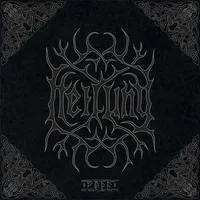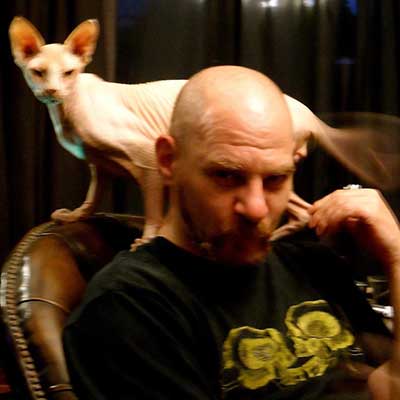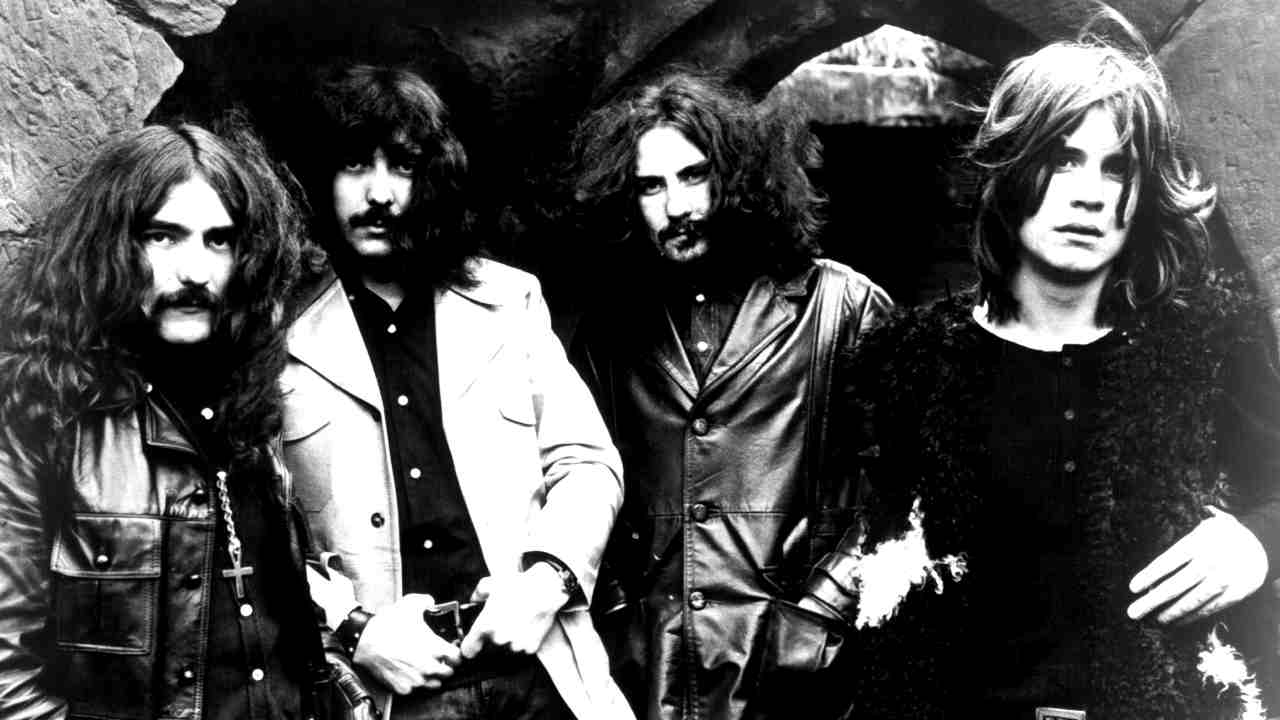Heilung: The force of nature that's leaving metalheads spellbound
What started off as an underground curiosity has become one of metal’s true modern phenomenons. We unearth the mystery of Heilung - the world’s biggest cult band
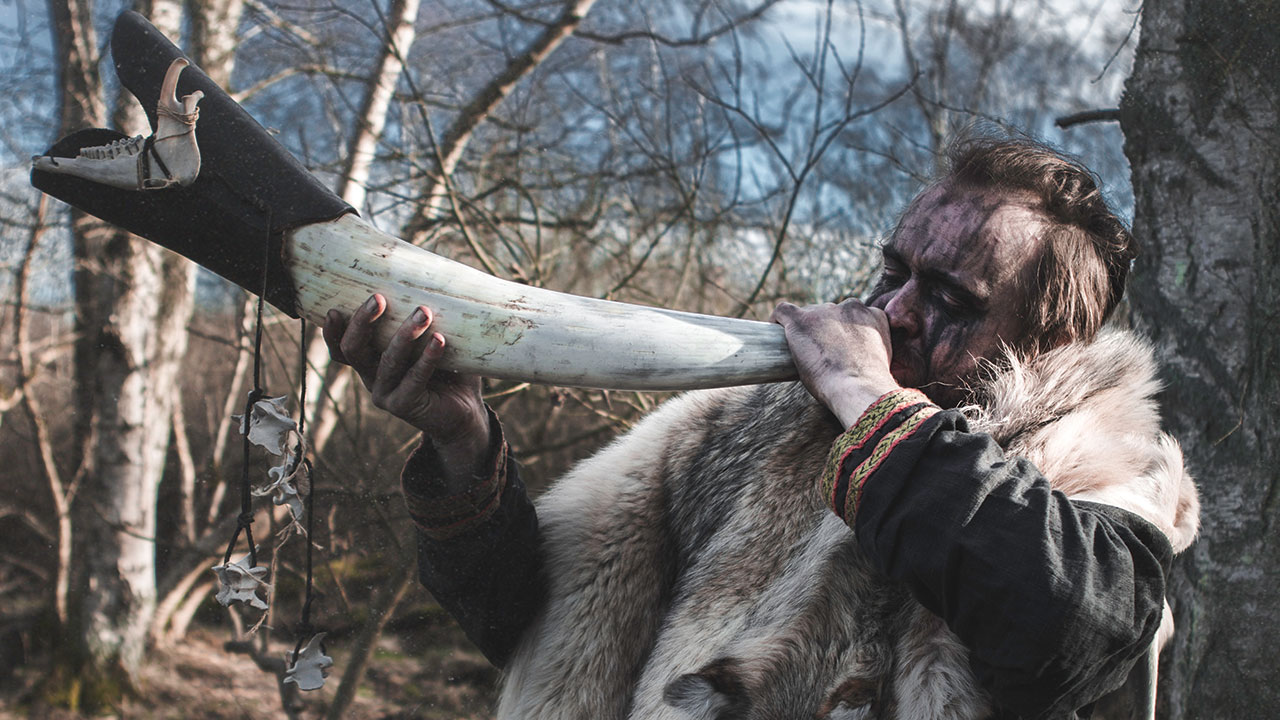
Select the newsletters you’d like to receive. Then, add your email to sign up.
You are now subscribed
Your newsletter sign-up was successful
Want to add more newsletters?

Every Friday
Louder
Louder’s weekly newsletter is jam-packed with the team’s personal highlights from the last seven days, including features, breaking news, reviews and tons of juicy exclusives from the world of alternative music.

Every Friday
Classic Rock
The Classic Rock newsletter is an essential read for the discerning rock fan. Every week we bring you the news, reviews and the very best features and interviews from our extensive archive. Written by rock fans for rock fans.

Every Friday
Metal Hammer
For the last four decades Metal Hammer has been the world’s greatest metal magazine. Created by metalheads for metalheads, ‘Hammer takes you behind the scenes, closer to the action, and nearer to the bands that you love the most.

Every Friday
Prog
The Prog newsletter brings you the very best of Prog Magazine and our website, every Friday. We'll deliver you the very latest news from the Prog universe, informative features and archive material from Prog’s impressive vault.
There’s a nature area outside my studio, where we recorded the first album,” says Heilung’s Christopher Juul. “Kai [Faust, Heilung vocalist], was standing there alone, and I was hiding in a bush to record him. At the same time there were two teenage girls, who happened to be riding past on a horse.
"From their point of view, they saw this guy standing on a hilltop screaming, and suddenly they started galloping the other way. I thought, ‘OK, the world is gonna love this.’ We managed to record the horse, too.”
If you’ve already encountered Heilung, you’ll know that the core three-piece – completed by vocalist Maria Franz – don’t operate on the same wavelength, or even timeframe, as other bands in our world.
This year they will be playing London’s prestigious, 3,300-capacity Roundhouse – the kind of venue that normally takes bands more than a decade’s worth of doing the rounds, gradual upscaling and forging of a deep audience bond before they can even take a sniff at it. It will be Heilung’s second-ever visit to these shores in the space of a year.
It would be easy to think of the band’s meteoric rise as the biggest phenomenon to hit the metal world in recent memory, initiated largely by the video of their full, spectacular debut live show at Castlefest.
It blew up worldwide almost as soon as it hit YouTube in November 2017 (vlogger reaction videos have become their own subgenre). More than a mere viral talking point, it immediately established a community, anyone who watched it feeling an instinctive connection to a tribe of antler-sporting heathens banging hide drums and bones to a regular, yet mind-altering 4/4 beat, chanting and throat-singing as kohl-painted warriors brandished spears and shields at a delirious audience of metalheads treating the whole experience as an Iron Age proto-rave.
But ‘phenomenon’ suggests Heilung came out of nowhere. Their debut album, Ofnir, had been out for two years before the world got pulled across their event horizon. Beyond that, bands only have such a profound and widespread effect, and appear
so fully realised from the beginning, when they’re the expression of a life’s mission.
Sign up below to get the latest from Metal Hammer, plus exclusive special offers, direct to your inbox!
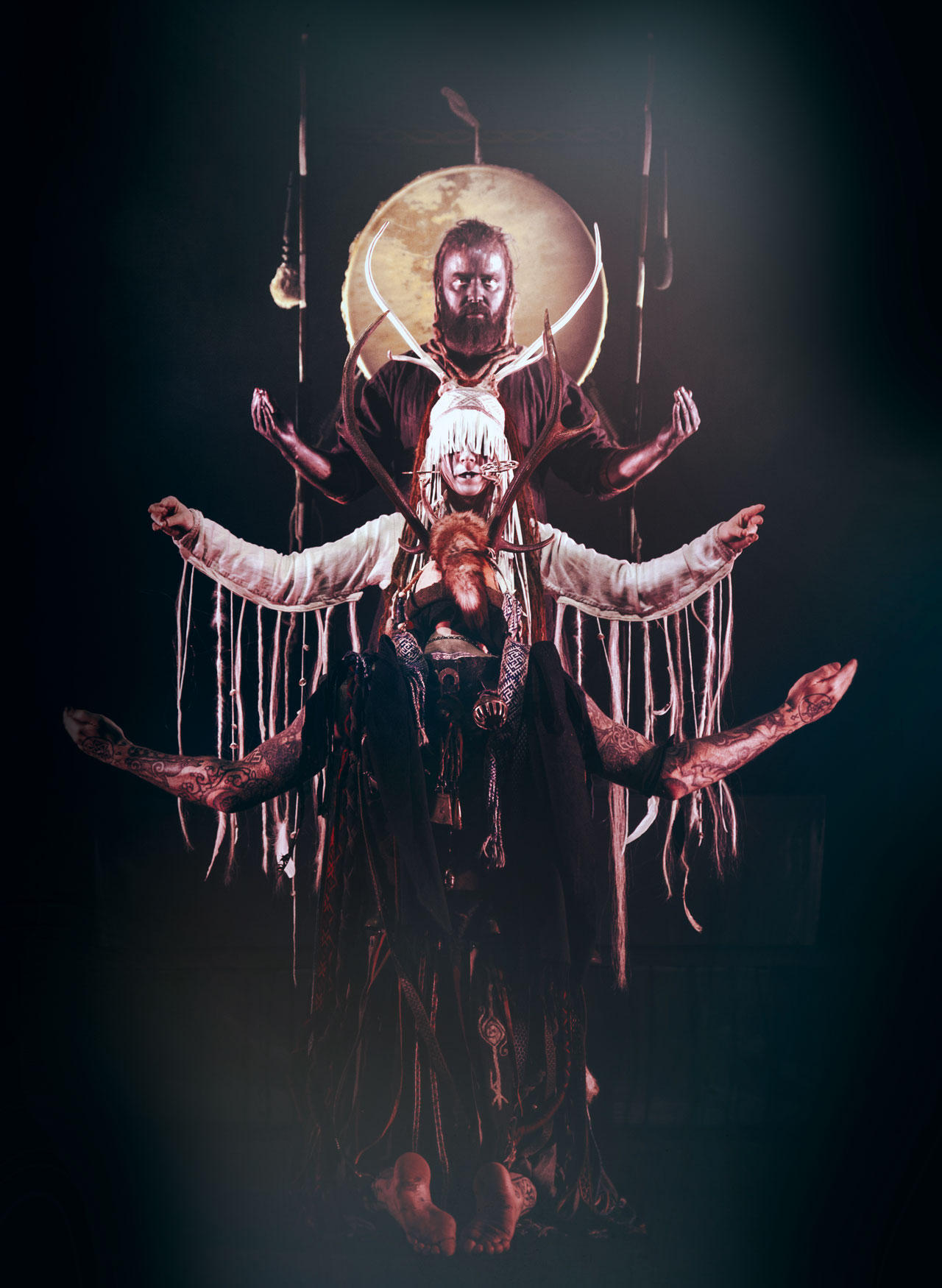
In person, Christopher, Kai and Maria are more down to earth than their ornate, shamanic stage guises might lead you to believe. That’s not to say Heilung is something they slip in and out of at will; it’s just that the passion they have for the project is measured in mutual wry humour and an easygoing, accommodating nature.
You can sense the manic energy that Kai channels onstage bubbling just below the surface, both he and Christopher having a twinkle of mischief in their eyes, and Maria a beacon of calming good will.
Maria’s connection to pagan spirituality was instilled in her as a child, having grown up in the historical Norwegian coastal town of Borre, once home to the Viking Yngling dynasty, and home to the beloved Midgardsblot festival where Heilung played their second-ever show.
“It was amazing growing up there,” she recalls, “because me and my sister used the national park there as a playground from when I was small. I would ski down the grave mounds that were there, where kings and queens are buried. The winds of history blow through the park so loudly that it’s impossible not to walk there and feel something of the pre-age.
"When I got older, I started to feel the need for saying thanks. I started making my own little rituals, which I had at very specific spots, and I needed to pick three different things that I saw on my path, and this was long before I knew anything about nature, religions or anything.”
Heilung’s aim is to alter your state of mind
Maria Franz
Her next turning point was the establishment of a Viking market in the area when she was 11, and with it a community of re-enactment enthusiasts covering ancient lore.
“I couldn’t believe all these people were doing things I always dreamt about doing,” she says. “Shooting a bow, playing a drum, fighting with a sword. You get to sit around a fireplace with everyone from teenagers to grand-parents who can share their stories and their wisdom. So it was like all the pieces of puzzle came together when we created Heilung.”
That moment happened when the three members met at the Borre market, but they all took paths that started in childhood. Christopher, now a renowned producer, is the son of a Danish pagan priest (“I’ve done my fair share of rituals through my childhood, staying in a longhouse for a long period and living without your mobile phone”).
Meanwhile, German Nordic-style tattooist Kai is an early history fanatic who became heavily involved in shamanic societies in the mid-90s.
‘Amplified history’ is Heilung’s core description of their mission, taken from the archaeological term, ‘living history’, which means attempting to recreate the past from fragments as best they can and putting them to use.
As Maria puts it, for all the deep level of research and knowledge that goes into both their music and live performances, “we’re not trying to replicate the past, but trying to create a feeling from ancient times”.
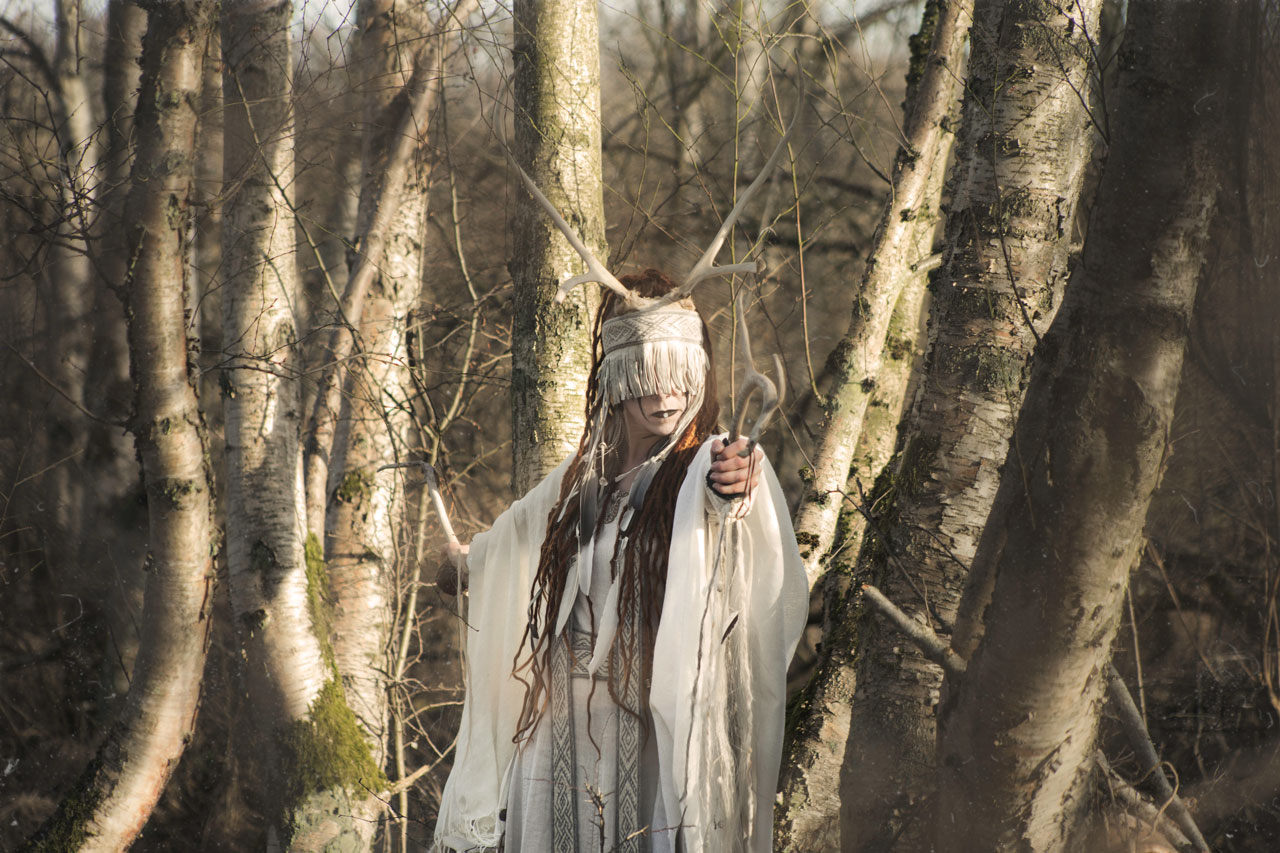
The effect is profound, both in the communal experiences of the live rituals and more private experiences of the albums – Ofnir and its new successor, Futha, representing female energy to balance the male aspect of the former.
“When it comes to shamanism and related activities,” says Kai, “it’s all about balance: to create balance, to keep balance, to reinstall balance. When we made Ofnir, it really had the focus on tough male stuff like war dances. Futha is really the female energy.
"It’s trying to put a light on the position of the woman, and of the energy of the woman before Christianity came in. It basically blacklisted all the herb knowledge, and what was lost in the new consciousness was the idea of women as powerful healing beings.
“It also ties into the purpose of the band, which is in the name itself,” he continues. “Heilung is ‘healing’ in German. It’s to give people the framework or the space to reconnect to their inner self, but also to the world around us.”
“I was reflecting the other day,” says Maria, “that we don’t have much ritual stuff going on in the west. We’re not like the Sufi religion, where they stand in a circle and just sing and dance for hours. They have that ability to create this free space, to get those emotions out there and get in contact with yourself. So that’s something I want
to create from a stage perspective, and do that together with the audience.
"We feel that there is a space where you can lose yourself in a trance-like state. We’ve also said Heilung’s aim is to alter your state of mind. It’s a magic thing that happens when you experience steady beats for a long time; you’re just in the present and you forget everything else. You come out on the other side and hopefully you feel a sense of relief.”
“There are rhythms in nature,” says Christopher, “and it’s a skill in itself to be able to find and then extract them. How does a waterfall sound when you put it through a distortion pedal? It sounds amazing. Nature has a chaotic sound that you will never be able to recreate with synthesisers.
"Of course, we use electronic effects, but the ground source of everything is all recorded from natural sources. I think that’s part of what connects to people, because in all the mess and the distortion, there is a sound that people actually know in themselves and relate to. We want to turn that up.”
Futha is out now via Season of Mist and available on CD, Vinyl and digitally. Heilung play London’s Roundhouse tonight, November 10.
The feminine counterpart to the Nordic neofolk outfit's previous offering, Ofnir. The band explain: "after darkness comes light, after winter comes spring after suffering comes relief after Ofnir comes Futha".
Having freelanced regularly for the Melody Maker and Kerrang!, and edited the extreme metal monthly, Terrorizer, for seven years, Jonathan is now the overseer of all the album and live reviews in Metal Hammer. Bemoans his obsolete superpower of being invisible to Routemaster bus conductors, finds men without sideburns slightly circumspect, and thinks songs that aren’t about Satan, swords or witches are a bit silly.
